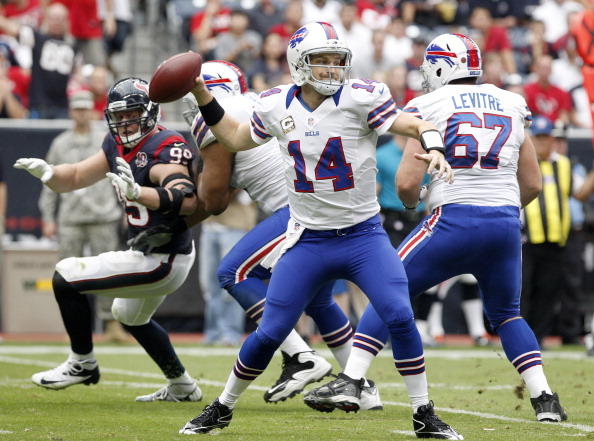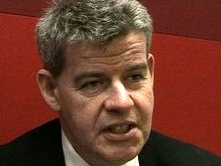By Andrew Warshaw
November 7 – Given recent sensitive and unsavoury episodes in English football, Alistair Kirkwood’s address to the forthcoming International Football Arena (IFA) in Zurich on how the round-ball game can learn from American football could not have been better planned.
Kirkwood (pictured top) has been the National Football League’s (NFL) United Kingdom managing director for five years and seems certain to provide considerable insight when he kicks off day two of the IFA conference next Tuesday (November 13) with a penetrating presentation contrasting two very different but passionately followed sports.
Kirkwood describes himself as a casual Celtic fan, while the Buffalo Bills are his preferred NFL team.
Interestingly the Bills (pictured below, in white) were the worst team in the country when he started supporting them, then got to four Super Bowls.
Okay they lost them all but because of the draft process in the United States, where the worst teams get first pick of the best players for the subsequent season, they improved considerably until, ultimately, going back down the ladder again.
Would Kirkwood countenance the same kind of model being applied to the transfer system in Europe to stop the richest teams invariably winning the major trophies?
He is cautious in his response, not wanting to either seem arrogant or give too much away before Tuesday.
“The one thing I would stress is that we are not competitive as sports,” says Kirkwood.
“Some things are transferable and others aren’t.
“But yes we do reward our worst-performing team with the best draft pick.
“The fact is that 18 different teams have appeared in the last 14 Super Bowls and seven different teams have won the last eight.
“There are numerous examples of teams going from last to first.
“Our philosophy is that the collective benefits the individual team.”

Another key difference is that in the States they embrace a salary cap whereas, for both legal and practical reasons, football in Europe has long resisted the practice despite intense dialogue about its merits or otherwise.
Again, Kirkwood is at pains not to criticise, rather to elucidate.
“We have a salary cap to make sure teams don’t try and buy success,” he says.
“I’m not suggesting that it is necessarily transferable to football but it does work for us.
“So does sharing of revenue rather than it being about where you finish in the league.
“We don’t reward on the basis of where you get placed.”
Player care is another issue Kirkwood feels strongly about and will be addressing in Zurich.
So much more advanced is the NFL than some of the footballing authorities when it comes to looking after their prized human assets that when new players join a team, they are given a three-day “rookie symposium” with their peers to learn how to conduct themselves and avoid mistakes.
And at the other end of a player’s career – again something football can learn from – there are detailed training courses providing career options for life after the NFL.
Kirkwood will also be discussing the “blackout rule” which demands that 85 per cent of all tickets need to be sold within 72 hours of kickoff – or the game will be not be shown on local television.
And at some point he seems likely to centre on the much lauded Rooney rule, under which the NFL is obliged to interview candidates from all ethnic groupings for senior coaching positions: a model that is bound to generate considerable interest among IFA delegates, as well as the media given the constant debate over why so few black coaches are employed by European clubs.
Contact the writer of this story at zib.l1743666103labto1743666103ofdlr1743666103owedi1743666103sni@w1743666103ahsra1743666103w.wer1743666103dna1743666103
